HADES
Archive for
Egos and coffee
I’ve been thinking this week about writer‘s groups and just how bad that little pursuit can go for you when you find the wrong one, as I have a couple of times. Usually as a writer you’re the most dreamy, inventive, eccentric, determined person in your little life circle, so when you get together in a group of writers and all your determination and eccentricities clash, the chemical reaction can be explosively awkward. Let me tell you a couple of my writer’s group tales of woe.
The first time I was ever invited into a writer’s group, or had ever considered being in one, I was an undergrad at uni. The guy attempting to set up the group had heard me reading my work out in a workshop class in the red-faced, hurried, stumbling way I always read my own stuff, and had decided I was ‘serious enough about the art’ to warrant invitation to his group. This should have been the first indicator of this man’s deeply rendered shitheadedness, but somehow this escaped me, and I was very keen.
At that time, he was the only other person he considered serious enough about the art to warrant inclusion in the group, so at the inaugural meeting it was just the plump and moustachey founder and I commenting on each other’s work. Baron Von Moustache’s only constructive feedback was that my work ‘was very much like a fine French patisserie: I walk by and I smell the bread baking and I’m allured, but something further needs to happen as the catalyst to my entry, some other inherent welcoming quality’ that he didn’t find in the writing. I asked what he thought I should do to make the work ‘welcoming enough to inspire entry’, swallowing the crude jokes dancing on the back of my tongue. He paused dramatically, fingered his moustache, squinted and said he didn’t know. Great. I told him that I thought the dream sequence at the start of his sci fi short story was intriguing, but that I found it odd that any type of emotion caused his main character to want to throw up. When she’s afraid, ‘bile rises in her throat’. Same when she’s angry. Or nervous. Or lost. Or excited. The sensation occurs again on page five when she sees the leading man for the first time. I wondered aloud with an easy laugh whether the character might benefit from consulting her doctor about acid reflux treatment.
Moustache ended the meeting politely and never contacted me again.
I went looking for my second writing group about a year later, and found them advertised in the back of one of those flimsy local rags wedged between ads for gardening and handyman services. A weekly meeting where authors heard each other’s work and met writing ‘challenges’. It sounded awesome.
I called and enquired and was met with much enthusiasm from the director of the group. He told me they had about ten regular members and that everyone was to bring a plate. I gathered up my best work at the time, printed and rolled it and carried it along with me to a local library, open after hours. When I arrived, I blundered into a room where eight or nine elderly people were sitting sipping hot tea. Before I could back out and find my group, the director, an ancient, liver-spotted skeleton in a massive electric wheelchair told me that I had indeed found it. I placed my Lamingtons on the side bench sat uncomfortably at the end of the table while the first member continued reading their work. Rhyming bush poetry. A jumbuck and a jackeroo and a sunburnt, dusty plain. I listened with my back teeth locked. There was applause and praise. The second lady, pushing seventy and trembling as she held her paper, read hers. More rhyming bush poetry. Magpies and sunlit kitchens, possums playing joyously in the eucalypts. Wattle. Bubbling creeks. I looked at my knees and tried to settle my stomach. The applause again. I clapped along, tried to guess how old the youngest member was. Sixty, from the eyeshadow and the perm. When it was my turn their watery, yellowed eyes fell on me and I tried to laugh off the fact that I hadn’t realised it was a poetry group. It wasn’t, they assured. They accepted all works on all themes in all genres, and they’d noticed I had brought something and wanted to hear it. I laughed again, wheezed, and said I didn’t want to. More cries of protest. I submitted and read a short story I’d written about a fidgety psychopath sitting in a cafe two tables down from the grisly, alcoholic detective investigating his very own case: a series of brutal rapes and murders, the bodies dumped in bushland. ‘So I got the bush theme,’ I chuckled when I’d finished. There was an asphyxiating silence in the room. The man in the wheelchair was clutching his chest and sweating.
It’s not often that I’ve felt myself ‘belonging’ around other writers, but when I do, it’s because I haven’t read their work and they haven’t read mine. I know a few writers, and what we really connect on is that seemingly biological craving to tell stories, to invent things, to turn life into narrative and narrative into life. I find the competition addictive also – I was raised in a huge, chaotic family, so the need to be ‘better’ than everyone else all the time is something that pulses in my every waking minute, like a neurosis. I have a pathetic need to be ‘the winner’ all the time. But around my writer friends it pushes me to write. I talk to other writers and play on their own one-upmanship, about a novel completed or an idea fully formed or a nibble on the line from a publisher.
Rarely have I found another writer who actually informs my work or even genuinely wants to.
I enjoy them merely for the fact that they share my love of the page – but more than a group of critiquers, we’re like a posse of reeking booze-hounds in the TAB comparing betting cards, cheering, glancing over shoulders, sneaking side-long glances, egging each other on with dripping sarcasm and congratulating each other with rolled eyes through clouds of cigarette smoke. A writer’s group might work for you, but I warn you against the desire of others to gather an audience for their own work rather than encourage you in yours, and the danger of bursting into a group (much like into a date) without sitting on the sidelines for a moment or two quietly gathering reconnaissance. I challenge you to limit your groups or partnerships to those who you itch to share your work with, whether their criticism will be cutting or thrilling, because your good writer friends will cut you now and then, as much as they love you, and they will understand you as much as they differ in their own style. If you’re not a sharer, like me, I implore you to hang out only with those writers who make you laugh, make your stomach clench with a desire to be better, make you rush home and wrench open your laptop and slam the keys. Because if you don’t feel this way, then it’s all just egos and coffee underneath all the laughter and the back-patting. And who the hell’s got time for that?
Kat James: Men are so awkward
As a social experiment, speed-dating could serve to teach generations of young researchers about optimism, desperation, fear, bitterness and that strange, instant camaraderie that happens between women of all ages in public bathrooms. I think I knew within the first ten minutes of arriving that I wasn’t going to meet that committed, funny, cuddly fellow academic or writer I’ve been searching for on the top floor of The Office Hotel in Wynyard.
As a down-trodden brigade of Sydney’s most pot-bellied, sallow-faced, badly-dressed and just-plain-weird trudged up the stairs into the waiting area, I flung my expectations out the grime-spotted windows and went looking for girls to chat up. While the dates themselves turned out to be a hilarious festival of awkwardness, I came away from the night truly surprised by the attitudes of the women I interviewed.
These were some hearty, serious and self-assured women, and I was glad to get to know them, however short our time together. I began my investigation into the attitudes of the women in attendance of Blinkdate’s Post-Valentine’s Day Celebration with a couple of young fillies sipping white wine by the windows while they surveyed what was on offer over on the men’s side of the room. Megan, 29 and working in sales, had dragged Amy, 30, a cleaner, along to ‘get some experience talking to the opposite sex’. What struck me first about these two ladies was their complete lack of nervousness or desperation. Megan had been single for three years, and blamed this on her rigid determination not to ‘settle’ for anything less than ‘a mature, serious relationship’.
Blinkdate’s extremely flirtatious organisers, the thickly-built and cologne-soaked Sash and Michael, had divided those in attendance into two groups. Those love-hunters in the 25-35 age bracket were inside, and the over 35s were on the balcony. Ladies remained seated, while fifteen men circulated the tables at seven minute intervals.
My first date was my fellow 5Why writer and friend, Julius, so we giggled nervously and discreetly evaluated our competition. Then he moved on, and my second date passed in a blur of young, well-dressed Filipino enthusiasm I can barely remember. Up next was a brooding Lebanese criminal lawyer who immediately cut the theory with me in discussions about power, masculinity, law and terrorism. Thrilling.
On a card distributed by the organisers, I began ticking or crossing off my dates based on whether or not I wanted to continue the discussion.
We hit break time, which I was incredibly grateful for, as half the crowd darted to the downstairs bar to acquire more Dutch courage, and the other half dashed to the bathrooms.
In the space before the mirrors, my new friends Megan and Amy erupted into laughter as soon as they spotted me. They were all a flutter with hilarity at their dates. Apparently, there were some real shockers coming my way, and they couldn’t wait to see what I would do when I got them. While my younger friends had been all bluster and sass, Kelly, 49 and her friend Sam, 46, were in a group of four old high school friends who were all divorced and raising teenagers, and they were all business.
When I asked Kelly what she was looking for, she rolled her eyes and started applying her lip-gloss. ‘Someone normal,’ she replied. ‘Someone with a bit of backbone. Someone who’s not interested in playing games. They’re all into their games when you get to this age. They don’t tell you they have children. They don’t tell you they’re divorced. They don’t tell you if they want a relationship. They don’t tell you anything! You’ve got to claw it out. It’s pathetic.’
Back at the tables, my shockers began to arrive.
A young Kevin Rudd lookalike strode in carrying a black leather attaché (for God knows what reason… It was a Saturday night – what the hell are you carrying in that thing?) and wearing a pinstripe suit. He was sporting very intentional short blonde ringlets that framed a face so infantile I wanted to offer him a candy and pinch his cheeks.
The solicitor and part-time opera singer oozed self-righteousness, and though the criminal lawyer had surprised and delighted me with his intellectual back-chat, baby K-Rudd just seemed to want to get it into my head that I should read some French philosopher for my PhD, totally unrelenting to any argument to the contrary. Later, when the night was over, he let me know that mine had been the only conversation that ‘intellectually stimulated’ him, and that ‘the nail artists and beauty-school retards’ upstairs had ‘turned his brain to mush’ with their ‘mindless talk of travel’. ‘Travel,’ he objected, waggling his finger in my face, ‘is not an interest. It’s a necessity.’
Arrogance with a side of sickening superiority, table one! After baby K-Rudd came a man so drunk out of his mind that he could barely keep his head straight on his neck. Now that was funny. I’d heard from the other ladies present that he liked to talk about his motorbike, so immediately asked him what kind it was and spent the full seven minutes watching in barely contained amusement as he tried to string words together about the machine and stay on his chair at the same time.
The most entertaining match of the night, however, was a man the other girls had been calling ‘The Murderer’. Comically styled head to toe in black and swishing shoulder-length raven hair, this pale ninja of social dysfunction had been hiding in the shadows all night, darting away whenever someone came within his personal bubble into another dark nook like a shiny cockroach hiding from a kitchen bulb. With a high-pitched, old crone’s voice, he sat down and ignored my friendly greeting and questions about how his night was going so far.
He proceeded to read a question from a list written on his palm, to which I responded with my usual cheerful prattling. The first was ‘What is your favourite film?’ I blurted out some justifications for my love of horror and realist sci-fi adventures. I asked him what his was, and he paused, looked deeply uncomfortable, and then ignored the question, proceeding to the next. ‘What is your favourite song?’ This went on for seven minutes. He only spoke to ask the questions. One minute he was there, and the next he was gone, his tick card lying blank and still like a dead white bird on the bar floor.
I think my experience with the desperate and dateless that night at The Office served only to confuse me further about men, which doesn’t really dishearten me, because I was fairly confused when I arrived. What I did enjoy, however, was the gathering of similarly bewildered, aggressive, optimistic and determined women who came along and how willing they were to share their hopes and dreams with me. While I’ve been hunting men this past year since arriving in Sydney, I think I forgot how special the hopeful bond between single ladies can be and how similar we all are, despite the arduous nature of our search. So cheers, single ladies. You made my night.
To Be Frank
Today I say goodbye to a very special man in my life: my protagonist, Frank. This afternoon I handed my approval on the final copyedit of my novel to my publishers at Random House, so from this moment on the words are set in stone. Frank, the women he hopelessly tries to understand, the partner he has no clue is an incredible danger to him, the killer he’s trying to save the people of Sydney from: they are out of my hands now, born and grown and out on their own, and I am sad.
Frank was a friend to me, one of the only men in my world I was certain I understood.
I could predict Frank. I trusted him. I fell in love with his inherent goodness, and there was goodness in there after all, deep underneath the misogyny and vanity and the serial marrying. I think even those writers whose protagonists aren’t meant to be loved, writers like John Fowles with his vile Freddie Clegg, feel some attachment to their main guys no matter their shortcomings. Face it, we all felt a bit sad when Tolkein’s Smeagol died, didn’t we? That hairless, annoying little freak. The world was one monster short when Mordor swallowed him. And the world needs monsters, failures, sickos and beasts. They make the rest of us look good.
Who is your protagonist? Why have you given him or her so much of your imagination? Do they do something, believe something, live some way that you imagine without the restrictions of family pressure, monetary strain, or something as fundamental as your gender, you would? I’ve admitted to many a creative writing student that a lot of Frank is me. I don’t like girls, and I have no real desire to be a man, but stepping into Frank is very much something I enjoy because I think we share a sense of humour and I’m characteristically bad at writing ‘normal’ women. I felt Frank’s bewilderment at the mechanics of flirting with women when a gay friend of a friend tried to pick me up at an engagement party for an hour and a half and I was clueless to what she was attempting the entire time. I know the skin-tingling rush that Frank feels at a live NRL match when the ball flies seemingly without restraint from one to another to another runner on the field toward the overlap, the unconscious desire to rise slowly out of my plastic seat, my hotdog forgotten. I feel his quiet terror when someone special comes into my life, the pulsating panic at the idea of losing some part of myself in order to give someone else what they need, the joy and tragedy of becoming half of a partnership. If things had gone a different way in my life and academia hadn’t ended up my calling, I would certainly have been a cop, and in fact made it into the training scheme twice but backed out each time. I don’t think these aspects of my personality make me any more a man or any less a woman, or any more Frank than Candice. But I think it does make Frank a better character to have a little of me in him.
What piece of your protagonist will be you, I wonder.
And will you be game enough to put a piece of you in every character on the page? I don’t suggest you wash the book with yourself so that your jokes flutter out of every mouth and everyone in the book is a Sex and The City fan; I mean here, a woman might be an obsessive picker of food just like you, and there, a man might hate slow walkers on the footpath like you, too. Someone might be the kind of disorganised freak who has a basket for clean clothes and a basket for dirty ones, both empty towers amid a valley of clothes, and a desk covered in a mountain of paper topped by an empty expanding file: just like you. Someone might chew their nails like you, lick their teeth like you, laugh like you in that honking way that makes people across the restaurant turn and look. I know I harp on about Stephen King a lot, but some of his best characters are writers.
What’s wrong with you, after all? You’re your own greatest muse. No one knows the taste of your mother’s lasagna like you. No one knows the stories you and your sister used to write when you were kids or how bored you got in your local church every goddamn Sunday morning, how you used to sneak books in inside your jacket and read them between your knees. It’s fine to imagine you’re someone you’re not: a king, a warrior, a witch, a billionaire, a farmer looking for a wife. But things become more real when you get inside these people, look through their eyes, pull their hands on like gloves and make them move instead of puppeteering from above, detached, godly. And you’re trying to make things are real as they can be, in the end. That’s your job.
I suppose my mission here is to remind you that the kind of characters who make people angry, who cause them to close the book in the bookstore and move on, or to rant on chat forums and bag out fans of the work are those characters who we can never hope to be. No one will ever be as beautiful, mysterious, worldly, heroic and sexually attractive as a certain teen dream vampire who’s blockbusted the genre over the last few years (I’m sure you know the one I mean. Prince Sparklepants.) This guy wouldn’t fart if you paid him. He talks about love as freely as he talks about the weather. Not once in the series was Prince Sparklepants drunk, obnoxious, rude, unable to articulate himself, a bad driver, grammatically incorrect, suffering from B.O., the instigator of a joke that no one else thought was funny. He’s never underdressed, overdressed, late, lost, too tired to pay attention to what someone else is saying, Facebooking in bed in the dark. He never accidentally calls a fat woman pregnant, tells his girlfriend to make him a sandwich, drools while he sleeps or leaves his hair all over the bathroom. Any character who did all these things across the same book would be too crude to believe of course, but when someone does them every now and then you remind the reader that your character is real.
And when real people face the dangers and challenges you set for them, readers care.
It’s with a heavy heart that I let Frank go, not knowing if I’ll get the chance to pump him with life again in book two. But I’m excited as to what and who else I can be, who will grow out of my desire, quirkiness, loneliness, greed, who will be shaved off my skin and gathered together in pieces, planted in soil, grown into something beautiful or poisonous, something that lives on its own. From here, the life that will burn in Frank will come from other people, strangers, reading him and hearing his voice. You can’t keep your people, but the loss of them is soothed by the gift you make of them to your reader. I hope you like Frank. He can be a bit of an idiot sometimes.
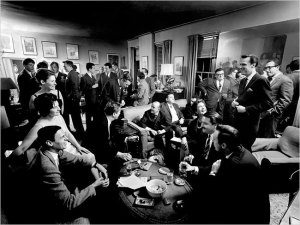
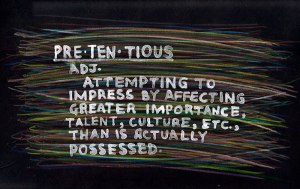
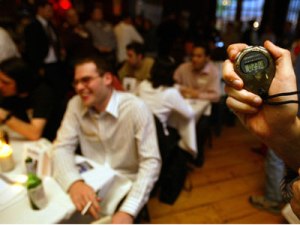
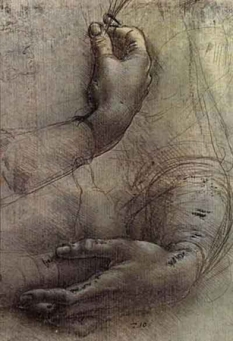
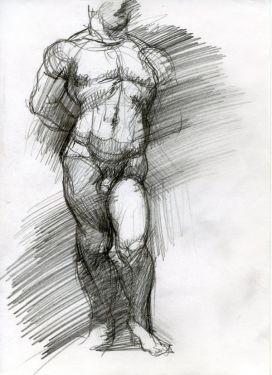
Recent Comments